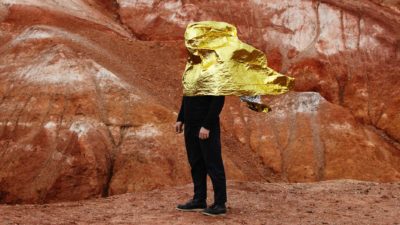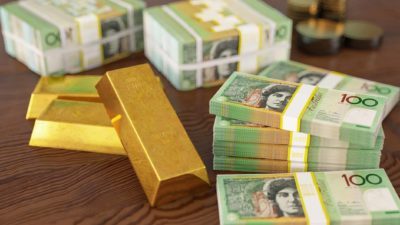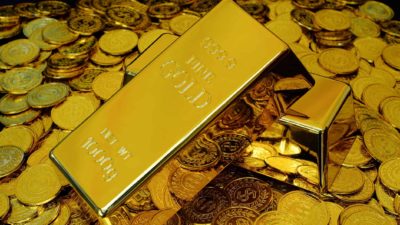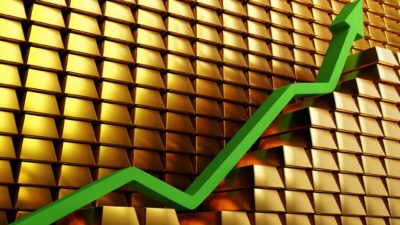Much has been made of gold's recent record price rise. And fair enough, too. It's not every day that the price of an asset reaches a new all-time high. And when that asset has thousands of years of history as an investment (predating every share market on the planet), it's an even more remarkable event.
Piles of gold
Yes, late last month, gold finally broke its 2011 high of US$1,921 an ounce. Today, it is well over US$2,000 an ounce. That means in 2020 so far, gold is up around 33%.
This has (predictably) caused a lot of excitement. When an asset experiences a climb like that, it gets the 'investor on the street' very interested.
And when buying into the gold market is as simple as buying units in an exchange-traded fund (ETF), it can result in a positive feedback loop that can cause a 'temporarily exponential' rise in prices. I do think we have seen this to some extent in gold prices this year so far.
Normally, I would caution against anyone jumping on a bandwagon like this. It does have some hallmarks of being an asset bubble in the making. After all, anyone who tried to buy into gold when the last record high was hit in 2011 has had 9 long years of waiting before seeing gold back at those prices.
But, after considering what an expert on the matter has to say, I am prepared to make that fatalist statement: 'perhaps this time is different'.
Views of a gold expert
The expert of whom I speak is Ray Dalio. Dalio is one of the most successful investors in history, having built his firm Bridgewater Associates into the largest hedge fund manager in the world, with more than US$130 billion in funds under management.
Dalio has long been something of a gold bug, but he has doubled down on his bullish views on gold since the coronavirus pandemic began. Why? Well, according to reporting in the Australian Financial Review (AFR) last month, Dalio believes that we are witnessing markets that are "no longer free" due to the unprecedented intervention of central banks around the world, particularly the US Federal Reserve.
"Today the economy and the markets are driven by the central banks and the co-ordination with the central government," the AFR quotes Dalio as stating. "As a result, capital markets are not free markets allocating resources in traditional ways."
Governments around the world are now running massive deficits as a result. And this is what has Dalio worried: "You're going to see central bank balance sheets explode, they have to because the choice is the sinking ship".
As a result of this, governments are likely to be issuing more and more bonds to fund these deficits. And with interest rates already at record lows around the world, Dalio reckons there are only so many bonds paying effectively nothing that investors will buy. And if they stop buying, that's not good news for those who already hold bonds.
The solution?
Gold, of course. Dalio thinks the choice between gold (an unprintable, physical asset) and a government bond paying no real interest is a non-starter.
As such, Dalio sees gold as an asset well-placed to navigate this Brave New World. So if you think it's too late to buy gold, I would take Dalio's advice and reconsider your objections. I still think ASX shares are the best vehicle for long-term wealth creation. But a bit of insurance in your portfolio never hurts either, in my view. Especially in these unprecedented times.








